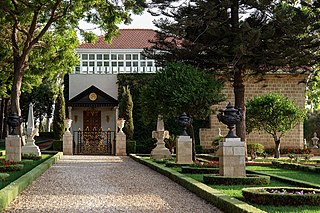A Quote by John Banville
Enormous morning, ponderous, meticulous; gray light streaking each bare branch, each single twig, along one side, making another tree, of glassy veins.
Related Quotes
Today the human race is a single twig on the tree of life, a single species on a single planet. Our condition can thus only be described as extremely fragile, endangered by forces of nature currently beyond our control, our own mistakes, and other branches of the wildly blossoming tree itself. Looked at this way, we can then pose the question of the future of humanity on Earth, in the solar system, and in the galaxy from the standpoint of both evolutionary biology and human nature. The conclusion is straightforward: Our choice is to grow, branch, spread and develop, or stagnate and die.
And so, at least symbolically, the blood of Eve courses through each one of her daughters' veins. We are each associated with life; each subject to the impossible expectations and cruel projections of men; each fallen, blamed, and misunderstood; and each stubbornly vital to the process of bringing something new--perhaps something better--into this world...We are each an Eve.
Recently my fingers have developed a prejudice against comparatives. They all follow this pattern: a squirrel is smaller than a tree; a bird is more musical than a tree. Each of us is the strongest one in his or her own skin. Characteristics should take off their hats to one another, instead of spitting in each other's faces.
The great pines stand at a considerable distance from each other. Each tree grows alone, murmurs alone, thinks alone. They do notintrude upon each other. The Navajos are not much in the habit of giving or of asking help. Their language is not a communicative one, and they never attempt an interchange of personality in speech. Over their forests there is the same inexorable reserve. Each tree has its exalted power to bear.
Recently, while I was in England, I saw a documentary on the BBC about the border between India and Pakistan at Wagah. When the border closes each evening around six o' clock, the soldiers on each side do these amazing high-stepping peacock march-offs (like a dance-off). The displays are almost identical on each side and thousands gather to watch them. Though they're patrolling along their separate borders, what comes across is how similar they are.
If, in each hour, a man could learn a single fragment of some branch of knowledge, a single rule of some mechanical art, a single pleasing story or proverb (the acquisition of which would require no effort), what a vast stock of learning he might lay by. Seneca is therefore right when he says: "Life is long, if we know how to use it." It is consequently of importance that we understand the art of making the very best use of our lives.







































